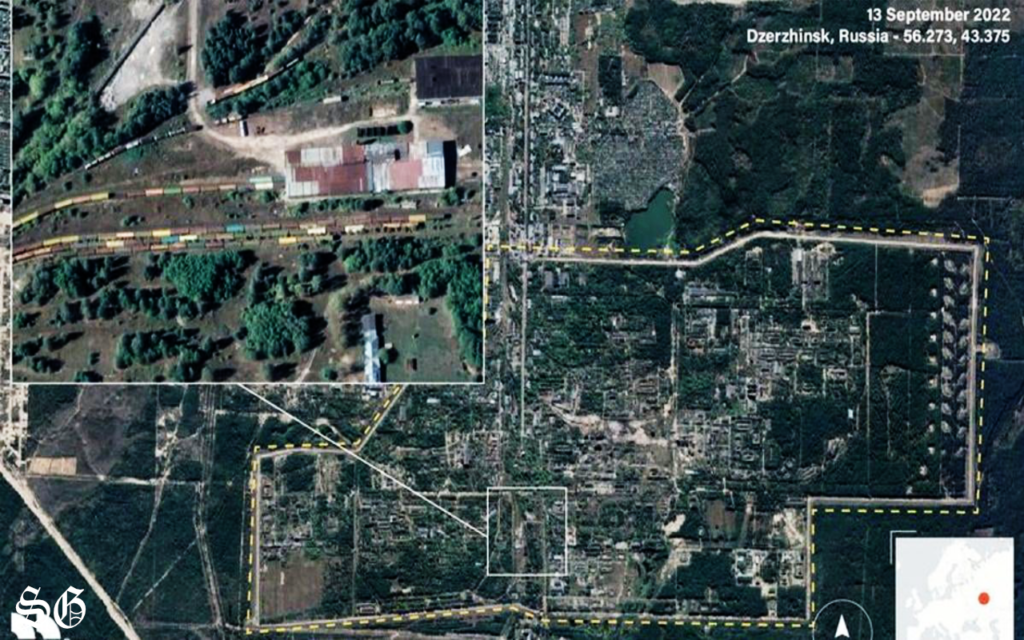Table of Contents

How Russian Billionaires Chemical Companies Fuel Moscow War Machine
Chemical factories owned by Russian billionaires are supplying critical ingredients to explosives manufacturers, indirectly supporting Moscow’s military operations in Ukraine. An analysis of railway and financial data reveals how the Russian war effort relies on these companies.
Key Figures and Companies
Billionaires Involved
- Roman Abramovich
- Former owner of Chelsea Football Club.
- Holds a 28% stake in Evraz, a steel company implicated in supplying toluene for TNT production.
- Vagit Alekperov
- Former president of Lukoil, with an 8.55% stake retained after divestments.
- Lukoil’s refinery supplied toluene used in explosives manufacturing.
- Andrey Melnichenko
- Founder of Eurochem, one of the world’s largest fertilizer manufacturers.
- Supplied acetic acid and nitric acid, key ingredients for explosives like RDX and HMX.
- Dmitry Mazepin
- Founder of Uralchem, a major fertilizer producer.
- Provided ammonium nitrate and nitric acid for explosives production.
- Iskander Makhmudov
Chemical Supplies to Explosives Factories
Dual-Use Products
- Chemicals such as acetic acid, nitric acid, ammonium nitrate, and toluene are essential for explosives but also have civilian applications, such as fertilizer production.
- The shipments support five munitions factories in Russia, including the Sverdlov plant, which manufactures high explosives like RDX and HMX.
Quantities Supplied
- Eurochem:
- Uralchem:
- Provided 27,000 metric tons of ammonium nitrate and 6,000 metric tons of nitric acid.
- Evraz:
- Supplied 5,000 metric tons of toluene.
- Lukoil:
- Delivered 6,500 metric tons of toluene to multiple plants.
- SUMZ:
- Supplied oleum to several munitions factories.
Investigative Data and Methods
Data Sources
- Railway Data:
- Over 600,000 shipments analyzed, detailing cargo, origin, destination, and recipients.
- Provided by the Open Source Centre, a British NGO.
- Tax Invoices:
- Leaked documents confirmed supplier relationships between chemical companies and explosives factories.
Validation
- Data accuracy was cross-checked against multiple databases and corroborated with expert analyses.
Implications of the Findings
Sanctions and Evasion
- While the billionaires are under Western sanctions, the chemical companies avoid direct penalties by claiming civilian usage of their products.
- Ownership restructuring, such as trusts and divestments, complicates accountability.
Western Policy Dilemmas
- Exemptions for fertilizer exports aim to avoid global food crises, inadvertently enabling Russia’s military production.
- Experts suggest revisiting sanctions policies to address these loopholes while safeguarding food security.
Military Impact
- Russia’s artillery production benefits significantly from these chemical supplies.
- Ukraine and NATO face challenges in matching Russian munitions output, exacerbated by shortages.
Policy Considerations
- Tightening Sanctions
- Strengthening Alternatives
- Develop supply chains for fertilizers outside Russia to reduce global reliance.
- Enhanced Intelligence-Sharing
- Increase collaboration among Western nations to disrupt illicit supply networks.
Conclusion
The analysis highlights the critical role of billionaire-owned chemical companies in sustaining Russia’s war effort. Addressing these supply chains while mitigating humanitarian impacts poses a complex but necessary challenge for Western policymakers.